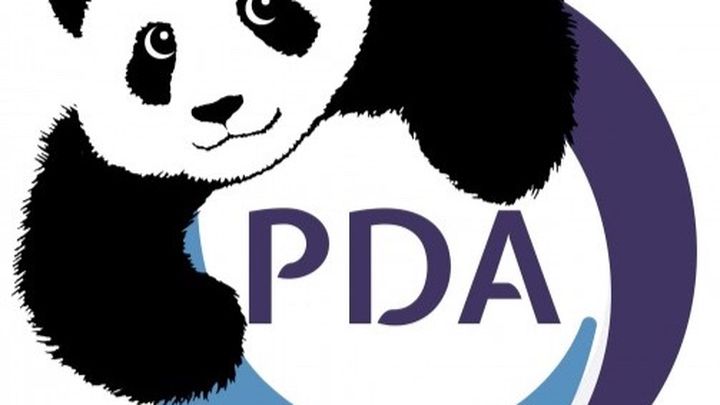
London to Brighton Bike Ride for The PDA Society.
On Sunday 15th September, my grandfather, Brian Barker, uncle, Nick Barker, and I will take part in the London to Brighton Bike Ride 2019. We are doing this for The PDA Society, a non-profit organisation whose dedication to raising awareness on PDA (Pathological Demand Avoidance), a complex and little-known part of the autism spectrum, has been ineffable. *100% of donations will go to The PDA Society.*
About me:
My name is Harry Thompson and I am the author of 'The PDA Paradox - The Highs and Lows of My Life on a Little-Known Part of The Autism Spectrum.' The book is an autobiographical account of my life as a person living with PDA - I myself was diagnosed with PDA at 18; and before that, ADHD at 13, and ASD at 14. The book charts my life from my very conception up until my 25th birthday - last year - and is available for purchase here: https://www.harryjackthompson.com/shop
I am also a YouTuber: https://www.youtube.com/channel/UCUOrWY2lW8NL4vfYslkGgLg a public speaker and PDA Expert by experience and Consultant. For more information on what I do and where I speak, please visit my website: www.harryjackthompson.com
Naturally, as a PDAer, this cause is very close to my heart, and we - my grandfather, uncle, The PDA Society and I - do hope that you will consider supporting us as we play our part in making the world a better place for individuals with the PDA profile of autism.
About PDA:
Pathological Demand Avoidance (PDA) is now widely recognised as a distinct profile of autism. Individuals with a PDA profile will share similar difficulties to others on the autism spectrum in the following areas:
Social Communication Difficulties
Social Interaction Difficulties
Restrictive and Repetitive patterns of behaviour (including sensory seeking or sensory avoiding behaviour)
In addition, the central difficulty for people with PDA is their “anxiety-driven need to be in control and avoid other people’s demands and expectations.” Understanding PDA in Children. Christie, Duncan, Fidler & Healy (2011). Furthermore, research conducted by Newcastle University in 2016 concluded that this extreme anxiety could be underpinned by an intolerance of uncertainty,
It is the Autism which underpins the extreme demand avoidance and need for control. It is worth noting that 'demand avoidance', as a sign and symptom of possible Autism, is included in The National Institute of Care and Excellence (NICE) Pathways guidance. Therefore, there should be no discussion about the existence of 'demand avoidance' as a sign or symptom of autism.
Signs and Symptoms in Children
Responding to others:
Unusually negative response to the requests of others (demand avoidant behaviour). NICE Pathways 2017, https://pathways.nice.org.uk/pathways/autism-spectrum-disorder
However, for those with a PDA profile the demand avoidance is different from that which others on the autism spectrum might experience, because of its extreme nature and obsessive quality. This extreme avoidance extends to the most basic demands of everyday living and is not limited to the avoidance of unpleasant, difficult, specific anxiety-provoking or unappealing tasks. Someone with a PDA profile will also have tremendous difficulty complying with their own self-imposed expectations and with doing things that they really want to do.
Autism is dimensional, which means there are lots of different traits and signs, and each individual will have a different experience - people are affected in varying ways and to different degrees. Others on the autism spectrum can display one or more of the key features of PDA. But, when many of the key features of PDA exist at a particular frequency and intensity, alongside the other features of ASD, it is important that the diagnosis highlights the PDA-profile, or that the ASD is 'characterised by extreme demand avoidance'. This is because those with the PDA profile will need tailored support, and a clear understanding of their needs.
In terms of the PDA profile there may be different terms used such as PDA, Autism Spectrum Disorder characterised by extreme demand avoidance, or ASD with a PDA profile. These terms may reflect the individual characteristics of the child, or the practitioner’s preference for particular terminology. Any of these terms can be sufficient as long as they sit alongside a detailed description of the child’s individual profile and provide a signpost to the most appropriate support and management strategies. The PDA Professional Development Group, What makes a good diagnostic assessment for a child with a PDA Profile, August 2017.
PDA is a lifelong disability and, as with other profiles of autism, people with PDA will require different amounts of support, at different stages of their life, depending on how their condition affects them. Limited evidence so far suggests that the earlier the diagnosis and the better support they have, the more able and independent they are likely to become.
More information about The PDA Society:
Our charity's current activities include: supporting discussions around people's experiences of living with PDA; providing support to those living and working with PDA; campaigning for greater recognition of the PDA profile' providing training to different audiences; sharing good practice and supportive ideas; developing new materials and tools which can aid understanding; collaborating with medical professionals as part of the PDA Development Group; organising an annual PDA day and biennial conference.
Please visit our website for further details: www.pdasociety.org.uk


